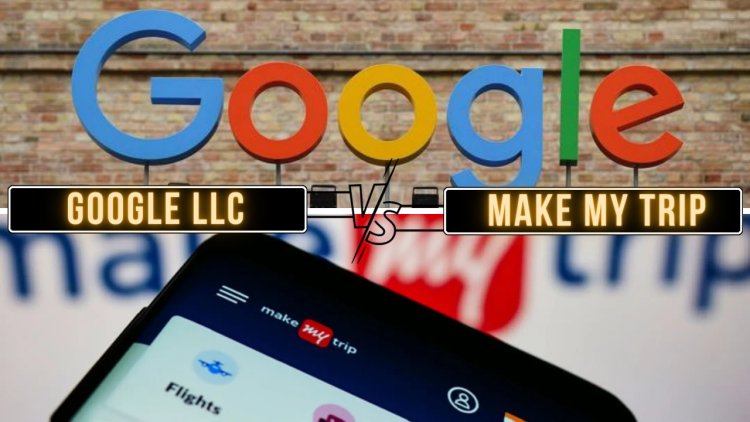GOOGLE LLC V. MAKEMYTRIP (INDIA) (P) LTD.
This judgment analysis concerns the legal dispute between MakeMyTrip (India) Pvt. Ltd. (MIPL), Google, and Booking.com. MIPL alleges trademark infringement against Google, claiming that the use of its trademarks as keywords in the Google Ads Program to display Booking.com's links/ads violates their trademark rights. The Single Judge initially sided with MIPL, considering the use of trademarks as keywords as trademark infringement and passing off. However, a recent decision refers to the Google-DRS Logistics Case, establishing that the use of trademarks as keywords does not automatically constitute infringement if no confusion or unfair advantage arises. The court rejected MIPL's argument, stating that Booking.com's actions did not mislead users into associating its services with MIPL. The analysis delves into the court's interpretation of the Trademark Act and its conclusion that the use of trademarks as keywords by competitors, without confusion, does not infringe trademark rights. Th

GOOGLE LLC V. MAKEMYTRIP (INDIA) (P) LTD.,
2023 SCC OnLine Del 7965
Decided on: 14th December,2023 (14/12/2023)
Court: Delhi High Court (D.B.)
FACTS
Google operates the Google Search Engine and runs an advertising program called Google Ads Program, which displays sponsored links and advertisements (known as 'Google Ads') on the search engine result page (SERP). MakeMyTrip (India) (P) Ltd. (MIPL) is a registered company that initially started with airline ticket bookings but has now grown to be one of India's largest travel companies. MIPL claims to be the registered proprietor of multiple trademarks, including word marks, 'MakeMyTrip' and 'MMT'. They allege that Google's use of their trademarks as keywords in the Google Ads Program to display Booking.com's links/ads constitutes trademark infringement under Section 29 of the Act. MIPL argues that the use of their trademarks by a competitor like Booking.com for advertising purposes is unfair and violates their trademark rights. MIPL also claims that Google is encroaching upon their goodwill by allowing their competitors to book their trademarks as keywords. The Single Judge prima facie accepted MIPL's arguments and concluded that the use of a registered trademark as a keyword constitutes trademark infringement. The Single Judge also observed that this practice of using trademarks as keywords could constitute passing off and fall foul of Section 29(8) of the Act.
ANALYSIS, LAW, AND DECISION
In a recent case, the Court referred to the Google LLC v. DRS Logistics (P) Ltd., 2023 SCC Online Del 4809, also known as the Google-DRS Logistics Case. In this case, the Court had previously determined that the use of trademarks as keywords by both Google and advertisers would not amount to trademark infringement. However, the use of trademarks as keywords would still be considered "use" in connection with the goods and services of the advertiser. If the goods and services covered under the sponsored link were similar to those covered under the trademark, then Section 29(4) of the Trademark Act 1999, would not apply. The Court rejected the argument that the use of trademarks as keywords would automatically constitute trademark infringement. The use of trademarks as keywords would not infringe the trademark as long as there was no confusion or unfair advantage created, and the internet users were not misled into believing that the sponsored links or Ads were associated with the trademark proprietor.
During the legal proceedings, MIPL argued that whenever someone looked up the term "MakeMyTrip", they found Booking.com's sponsored link in the second position, right after MIPL's own link. MIPL further claimed that Booking.com was also bidding for MIPL's trademarks as keywords. The Court, however, observed that when someone searched for MIPL's name or its trademarks using Google's search engine, they would easily find MIPL's web address in the organic search results on the SERP (Search Engine Result Pages). The Court rejected MIPL's argument that Booking.com's ads or links should not appear as sponsored links on the SERP.
According to the ruling of the court, Booking.com, a well-known and widely used travel services platform, could not be accused of misleading internet users into believing that its services were actually those of MIPL. The court found that the argument made by the Single Judge, suggesting that Booking.com's use of the 'MakeMyTrip' trademark as a keyword would constitute an infringement under the Act, was incorrect. This was mainly because the services offered by Booking.com were found to be quite similar to the services covered by MIPL's trademarks, and as a result, Section 29 of the Trademark Act 1999 would not be applicable in this case.
In this case, the Court referred to the Google-DRS Logistics Case and concluded that the use of the trademark 'MakeMyTrip' by MIPL as a keyword did not violate Section 29(8) of the Trademark Act, 1999. The Court rejected the argument that using a trademark as a keyword automatically constitutes an unfair advantage and goes against honest practices in commercial matters. The Court clarified that the use of trademarks as keywords by competitors, as long as there is no confusion or deceit involved, does not amount to infringement.
In this case, the Court gave its opinion that the use of trademarks as keywords could not be interpreted as applying the registered trade mark to any material intended for labelling or packaging goods, as a business paper, or for advertising goods or services. The Court observed that neither Google nor the advertiser used the trade mark on any material, nor did they do so on any material intended for labelling or packaging of goods or as a business paper. The Court further opined that there was no application of the trade mark on any material for advertising goods or services. Consequently, the Court set aside the previous order of injunction passed by the Single Judge.












